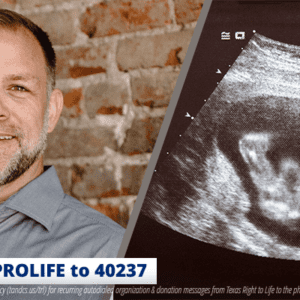New research suggests that fetal viability may be earlier than doctors thought
Viability (a baby’s ability to survive outside the womb if born prematurely), has had a huge impact on the abortion debate. The gestational age of viability is the point at which many elected officials who advocate for abortion will concede that abortion should cease to be a legal option. Consequently, 21 states maintain abortion laws prohibiting the killing of a preborn child who has reached the age of viability. Until recently, 24 weeks gestation was accepted across the board as the age at which doctors would intervene to save a child born prematurely. But, according to the New York Times, new research suggests that more doctors should intervene to assist babies born as early as 22 weeks.
The ability of a very premature child to survive hinges heavily on the development of his lungs. Some doctors reject the notion that a child faces ‘good enough’ odds of survival prior to 24 weeks, so they simply will not intervene for a baby born earlier. However, physicians have seen growing success with babies born as early as 22 weeks, especially when they are above a certain birth weight, and their mothers can be treated with corticosteroids prior to delivery.
A study that observed the outcomes of 5,000 babies born between 22 weeks and 27 weeks gestation found that, among 22-week-olds, 18 of the 78 babies who were actively treated survived. Some of these went on to have no impairments at all, while others had disabilities like blindness and cerebral palsy. Still, some doctors do not find the survival of 18 out of 78 children enough to merit intervention for any child born at 22 weeks. Instead, they would leave babies of that gestational age to die without attempting to save them.
Jeffrey Perlman, for example, is a physician in the neonatal intensive care unit at New York Presbyterian Hospital Weill Cornell Medical Center. As the director of the unit, Perlman goes “after the 24-weeksers… At 22 weeks, in my opinion, the outcomes are so dismal that I don’t recommend any interventions.”
Virtually no one denies that children born at 22 weeks cannot survive without medical care. The question is: Will a neonatologist at any given hospital choose to intervene to save the child, or will the child’s fate be irrevocably determined by an intentional absence of medical care, based on a judgment that such care is not statistically pleasing enough to try? Children who are alive today because their doctors treated them at birth defy the notion that interventions are pointless. Micah Pickering, age 2, and Alexis Hutchinson, age 5, are two children who are healthy and happy today, because they were not left to die when they were born at 22 weeks gestation.
Because so many states – and the Supreme Court – hold the abortion of nonviable children as a legal right, these new findings raise important questions: Will the widely-accepted age of viability be changed to 22 weeks, and if so, when? And, does a physician’s bias in favor of abortion make him less likely to offer treatment to a baby delivered earlier than the status quo 24-week viability mark? One thing is clear: no argument for the legality of abortion stands on firm premises – the ever-changing perception of fetal viability is just one of many instances of the shaky ground on which the so-called “right” to kill children stands.
Tags: bioethics, premature, technology, viability




